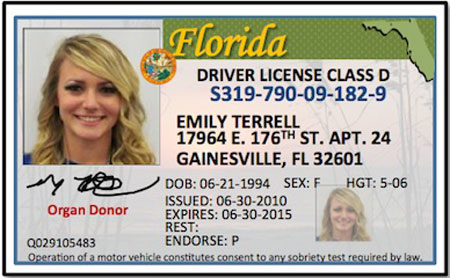Is An Expired ID Acceptable For A Notarization?

Notaries And Impartiality
July 6, 2018
The Top Misconceptions About a Power of Attorney
November 4, 2019Is An Expired ID Acceptable For A Notarization?
Following please find an article from NationalNotary.org discussing the laws about accepting an expired ID.
Updated 9-18-18. Expired or out-of-date identification documents can put Notaries in a tricky situation. On the one hand, the ID may not be acceptable under your state laws … but what if it’s the only form of ID the signer has?
Notaries are presented with expired IDs more often than you might think. The elderly, disabled, impoverished, or any person who doesn’t drive regularly, often let their identification documents expire. But they still need notarizations from time to time.
While some states offer clear direction on handling expired IDs, other states do not, which leaves Notaries responsible for determining whether the ID is acceptable. That’s why it’s so important to be familiar with your state’s requirements.
Know Your State’s Requirements
Some states only permit Notaries to accept an expired ID if it was issued within a certain time period.
In California, any signer ID allowed under CA law must either be current, or, if expired, must have been issued within the past five years. An expired ID that was issued more than five years prior to the date the notarization takes place may not be accepted. This requirement applies to signer ID presented for both acknowledgments and jurats.
Florida also permits Notaries to accept expired IDs from a signer provided the expired ID was issued within the past five years and includes a serial identifying number. This includes driver’s licenses and ID cards issued by U.S. states and territories, Canada, or Mexico; U.S. passports or foreign passports stamped by U.S. Citizenship and Immigration Services (USCIS); U.S. military IDs; veterans health ID cards issued by the U.S. Department of Veterans Affairs; U.S. Bureau of Federal Prisons IDs inmates in custody or ID cards issued by USCIS.
A number of states have adopted the Revised Uniform Law On Notarial Acts (RULONA), which allows an ID to be accepted up to three years after it has expired. If you’re a Notary in Iowa, Montana, North Dakota, Oregon or West Virginia, then you may accept an expired ID that falls within the three-year period.
Thirteen states require Notaries to accept a “current” ID. Pennsylvania, for example, requires “a current, government-issued identification card…” Texas requires an identification card presented by a signer to be current and issued by the federal or state government. One state, Illinois, requires IDs to be valid at the time of the notarial act and Arizona, Delaware and Virginia require IDs to be current and unexpired.
So far, this accounts for less than half of U.S. states and jurisdictions. More than half of all states have laws which do not say an ID must be current, valid or unexpired.
If your state’s Notary laws do not specifically spell out what to do in the case of an expired ID, then the NNA recommends that you make it your professional standard of practice to accept only unexpired IDs.
If A Notary Cannot Accept An Expired ID
If you’re not allowed to accept an expired ID, there may be alternatives to identify your signer, but these methods also vary by state. In most cases, a valid, unexpired U.S. passport would be acceptable. U.S. passports are valid for 10 years, typically double that of most driver’s licenses and state IDs. Considering that more than 125 million people, or about half of all U.S. adults, currently hold passports, that is a workable option.
In most states, signers may also be identified through the use of a credible witness, or two, providing that your state laws allow this, and that the witnesses meet all statutory requirements. In Pennsylvania, for example, a credible witness must personally know both the signer and the Notary. Florida, on the other hand, allows the use of two credible witnesses who do not personally know the Notary. In this case, the witnesses must present valid, state approved ID to the Notary, and sign a sworn written statement.
To find out if you may rely on credible identifying witnesses, check your state Notary handbook, usually available from your commissioning authority, or the State Law Summaries posted on the NNA website.
If you have questions about what your state requires or does not require, you can call the NNA Hotline for further guidance.




